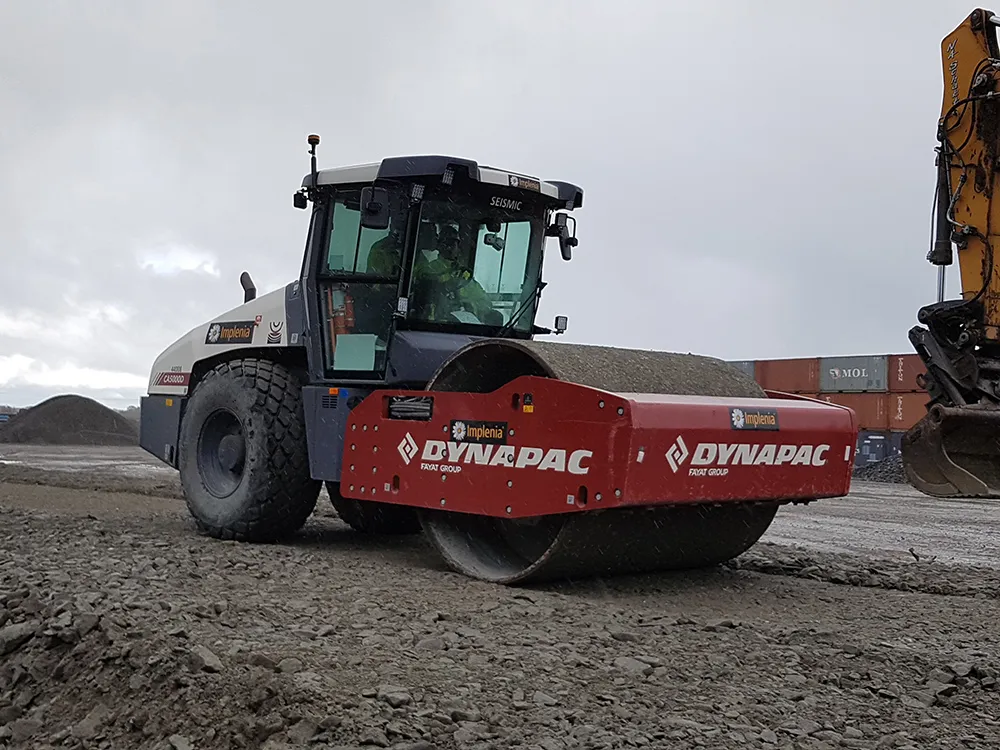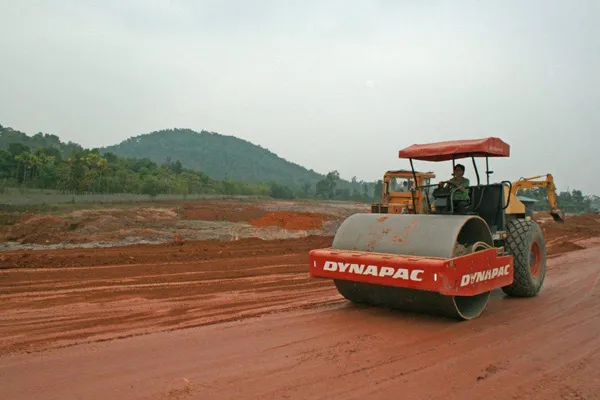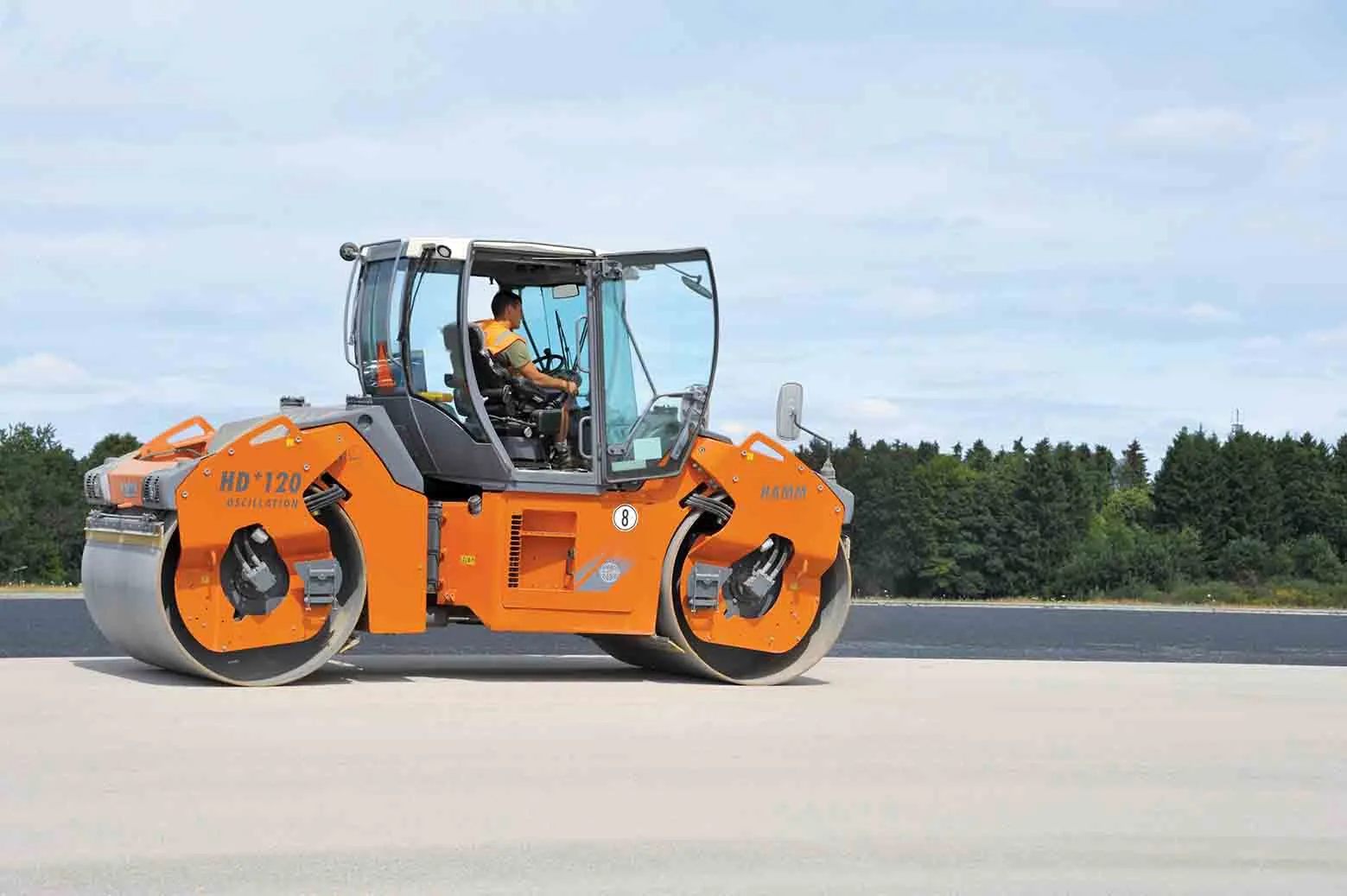
“Especially the compaction control system Dyn@Lyzer is a key technology in this challenging project”, said Peter Claesson of Implenia. “An important aspect of this is the collection of data that gives us a complete overview of the compaction levels achieved throughout the project, as this information is recorded at each pass which is one of the numerous benefits of a data-led smart compaction strategy.”
Train traffic on the west coast of Sweden is getting an upgrade. The focus is on efficiency, environmental improvement and road safety. The new double track on the West Coast Railway is scheduled to open for traffic in 2024. Leading Swiss construction and infrastructure specialist Implenia is using the latest technology and data capture solutions on a fleet of Dynapac CA5000D Seismic rollers to deliver works for this project beneath the city of Varberg.
A challenging tunnel with plenty of benefits
The 328 million Euro project, commissioned by the Swedish Transport Administration, involves creating a twin-track 8km expansion of the railway line between Varberg and Hamra, which includes the 3.1km long tunnel. The existing track runs along the waterfront, resulting in a barrier effect between the city and the water that will be removed by the new tunnel. It will result in the expansion of the city closer to the water. The land where the current railway yard is located will also be freed up for new construction.
However, with its location close to residential and commercial buildings, the works have had to overcome environmental challenges. This project is set to make a big difference to passengers using the railway. But for those living and working close to the project, noise emissions and vibrations need to be limited, particularly within the urban area of Varberg, where the tunnel entrance has only a few meters of rock coverage.
Compaction work whilst continuous management of traffic flows and trains
Head of production Earthworks (south), Peter Claesson explains: "Of course, we must achieve all of this by ensuring the project is constructed to the highest standards. When we looked at how to deliver this project, we took the opportunity to explore what innovations and technologies were coming to the market. Our team identified the new Dynapac Seismic compaction solution available on its roller range as part of this exploration phase. We also recognized that this could be matched with its machine fleet monitoring solution, Dyn@Link and compaction control system, Dyn@Lyzer”
“In using the Dyn@Lyzer, we have been able to achieve several key project benefits. The first has been to collect data that gives us a complete view of compaction levels achieved across the project, as this information is recorded at each pass. With the use of Seismic, noise reduction and decreased environmental impact have eased the impact on local residents. Fuel savings thanks to the Seismic system have also been significant.”
As part of the deal to buy two new Dynapac CA5000D rollers for the project, the Implenia team opted for a full three year service and training support solution with Dynapac and extending the machines' warranty.
With data now being collected across the site, the Implenia team and its client the Swedish Transport Administration (Trafikverket) are reaping the numerous benefits of a data-led smart compaction strategy, as are the residents.
For more information, please contact:
Magnus Fast, Dynapac Aftermarket Manager for Scandinavia
Content produced in association with Dynapac








